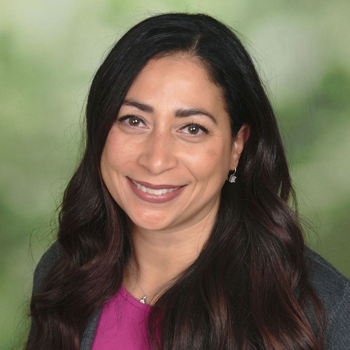 This life is not for the faint of heart.
This life is not for the faint of heart.
Sometimes it’s the problems we expect to have, such as making decisions about career goals, relationship problems, trying to live up to expectations, financial stress, balancing work and family, etc., that pile up on top of each other and become overwhelming.
Other times, we’re rocked by significant life-changing events, such as major health issues, abuse, the death of a loved one, divorce, infertility, etc., and it feels like the rug has been ripped out from under our feet.
I know this all too well, both from professional and personal experience.
But there is good news.
Life is challenging. That much is true, but what I also know to be true is that people are resilient. We are fighters.
YOU are a fighter.
It’s your resilience and your willingness to fight for more, to fight for healing, to fight for health and personal growth, to fight for happiness, that will empower you to face and work through your problems and challenges.
And fighters can come out even stronger on the other side.
Why should I talk to someone else about my problems?
I should be strong enough to figure things out on my own.
My response to this statement is simple… says who? Being vulnerable and opening up to someone about the problems and struggles you’re facing doesn’t mean you’re weak. It means quite the opposite.
Talking to someone can help you think through and process your problems and struggles and sometimes help you gain some perspective by looking at these issues from a different vantage point.
At the very least, it can help you feel less alone.
And the reality is that you’re thinking about therapy because you have likely been trying to figure things out on your own – and it just isn’t working.
 Why can’t I just talk to a friend or family member?
Why can’t I just talk to a friend or family member?
The support you receive from friends and family is incredibly important. Being able to reach out to someone who knows and cares about you when you’re going through something difficult is sometimes all you need.
That said, as much as they may want to help, they often don’t know how to help or what to say.
Though they mean well, they can leave you feeling misunderstood and unsupported, and sometimes even more alone than you felt before.
Most of the time, your friends and family are not trained therapists, but that’s only part of it.
It’s complicated.
Your history with friends and family can complicate things.
The reality is that, while your friends and family love you and want what’s best for you (at least, most of them, anyway), they can’t fill the role of therapist.
Why not? First, you might have difficulty being completely open and honest with them about what’s going on.
Furthermore, your personal relationship and history often make it nearly impossible for them to be objective – and can also make it difficult for you to hear what they have to say.
Even trained therapists can’t provide professional care for their friends and family.
And, sometimes, the challenges are simply beyond what a good heart-to-heart can mend.
 How will talking to a therapist help?
How will talking to a therapist help?
On the one hand, the idea of sharing your most personal and private feelings with someone you’ve never met may seem strange. I get it – I really do get it.
On the other hand, who better to talk to than to someone whose only purpose is to be there for you.
Think of it this way: as your therapist, my priority is YOU.
I’m here to support you, to listen to you, to advocate for you, to help you advocate for yourself, to facilitate your healing, and to help you reach your goals.
When you walk into my office, you’ll enter a safe space – free from judgment or criticism. You can feel, think, or say anything.
Even if you’re sharing something you feel ashamed of or embarrassed about, remember this –
I am not the morals or values police.
My role is to create a space where you can feel comfortable to share what’s going on in your life. We can then explore and understand your feelings, thoughts, beliefs, coping strategies, relationship patterns, and how these things relate to your current challenges and problems.
 What to expect
What to expect
The initial phone consultation.
This should take only about 20 minutes or so. During the consultation, I will gather some information about what prompted you to start therapy and reach out.
This phone call also allows you to ask any questions that you might have, which is just as, if not more, important – because you have to feel like we’re a good fit, plain and simple.
And if at the end of the consultation, I feel like I can be helpful, and you feel like it’s a good fit, we can go ahead and schedule our first session.
Your first few sessions.
During our first sessions together, we’ll talk about a lot of things – about what’s brought you to therapy, as well as other areas of your life, both past and present.
We’re not looking for someone or something to blame for the problems you’re experiencing today.
Our goal is to understand the past – but not get stuck there. Exploring your history allows us to understand how these experiences have shaped you into the person you are today.
Setting goals.
Once we’ve explored those issues, we’ll work together to identify your goals for therapy.
The things that YOU want to work on, the things that YOU want help with – because this is YOUR work and, therefore…
Only YOU can set the agenda.
Therapy isn’t me giving you advice and telling you what you need to work on. Therapy is not a weekly pep talk.
Therapy is hard work. And it’s uncomfortable – because change is uncomfortable.
That’s why only YOU can determine your therapy goals.
But that doesn’t mean you’re alone or on your own to figure these things out.
I’ll be there to work with you. I’ll be by your side – every step of the way – to help you turn these goals into reality.
About Nicole
 Why I became a therapist
Why I became a therapist
While I realize this might sound cliché or cheesy, I remember wanting to be a therapist at age 11 or 12, long before I really understood what therapy was.
I believe that there are old souls in this world and that I am one of them, for better or worse. At a very young age, I often found myself observing people, noticing when they were struggling, and wanting to understand what was going on and help in some way.
I decided to pursue a Master’s Degree in Clinical Social Work because the ideology of Social Work is rooted in social advocacy and focuses on how external factors and people’s environments contribute to the struggles and mental health problems.
We’re all shaped by our environments and experiences.
Acknowledging this is key in facilitating healing and personal growth – mainly because this principle doesn’t allow people to be labeled as good or bad, as healthy or damaged.
Labels are the enemy of change and growth because they leave you nowhere to go.
If I don’t know something, I can learn.
But if I’m stupid, I’m incapable of learning.
I believe that we’re all doing our best at any given moment in time… but that doesn’t mean that what we’re doing is healthy.
Therapy will help you develop insight and healthy coping skills, so you can heal and address the problems that brought you into treatment in the first place.
Education and Professional Training
I attended the University of Toronto, where I completed an Honors Bachelor of Science in Psychology. I volunteered at a Suicide Prevention Hotline and worked in a homeless shelter and a residential treatment program for teenage girls before moving on to get a Master’s of Social Work degree at Simmons College in Boston, MA.
After graduate school, I completed a post-graduate fellowship offered by the University of Michigan’s Department of Psychiatry. I provided individual and group psychotherapy for adults struggling with depression, anxiety, and bipolar disorder. I went on to work there for another eight years, providing therapy and training for Social Work Interns and Post-Graduate Fellows, before going into private practice.
Working at the University of Michigan offered many amazing training opportunities and allowed me to further develop my clinical skills in many different treatment modalities, including Cognitive Behavioral Therapy, Interpersonal Psychotherapy, and Motivational Interviewing. The most valuable part of this experience was learning from and collaborating with so many amazing clinicians.
I am a member of the National Association of Social Workers (NASW), a member of the American Society for Reproductive Medicine (ASRM), and a member of ASRM’s Mental Health Professional Group. I’ve completed additional training in counseling individuals and couples struggling with infertility and reproductive loss issues.
 Why Carry The Hope Counseling?
Why Carry The Hope Counseling?
When I was thinking about naming my practice, I kept coming back to something that my Clinical Supervisor (Susan) said to me when I was an intern in graduate school. I discussed the deep sadness and sense of hopelessness that one of my clients was experiencing and struggling to figure out how I could help.
Susan listened carefully and intently, as she always did, and then said something that, while it sounded simple, was tremendously complex and meaningful to me. And all these years later, this lesson comes to me whenever I am sitting with someone struggling.
until they can carry it themselves.
My Approach
This isn’t Hollywood.
Our sessions will not look like what you might have seen on TV or in the movies.
I’m not saying that I will never utter the words, “How does that make you feel?”
But I take a more active approach in my work with clients. And that means I’ll be interacting with you, asking questions, and getting in the trenches with you.
I’m a real person.
While our relationship can’t be a personal friendship, it’s generally inappropriate for therapists to share personal details with their clients.
Rest assured – I’m a real person, and I’ve experienced many challenges throughout my life.
These experiences help me connect to each person I meet, including you.
Though healing, growth, and change are difficult, they are possible.
I’m a woman, a mother, a sister, a daughter, a friend, and an ex-wife (see, I told you I was a real person). I’ll laugh with you when things are funny, and I’ve been known to tear up on occasion during those heavier moments.
I won’t lie to you and say that this work will be easy – because it won’t be. In the beginning, it will be uncomfortable at best – and maybe downright terrifying at its worst.
But it will also get more comfortable with time and healing and growth.
There is only one path…
To the healthy side of the problems or issues, you’re facing the healthy changes you want to make.
It’s not around, over, or under.
It’s through, and I’ll be there with you as you make this journey.
So let’s get to work! Please take the next step and call or email me today!

